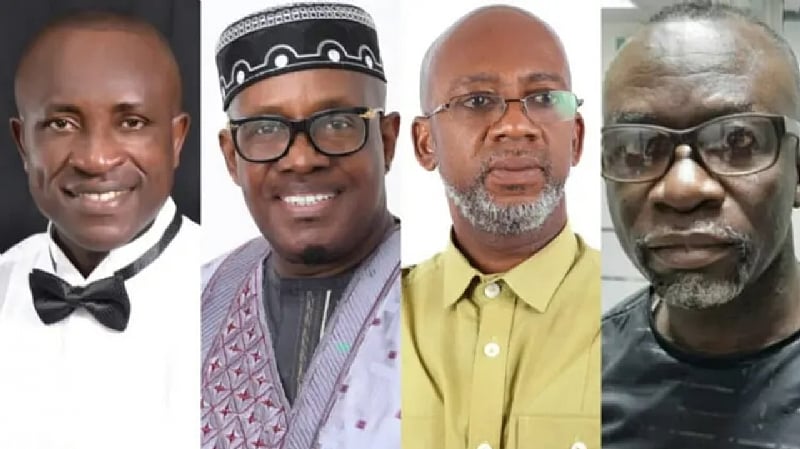Ghana’s creative arts industry is renowned for its vast array of talent and rich cultural offerings, encompassing music, film, theater, and visual arts. However, this vibrant sector faces a significant challenge: persistent discord among its various stakeholders. Instead of fostering a collaborative environment conducive to collective growth, many players prioritize personal recognition and individual achievements, resulting in rivalries that ultimately undermine the industry’s cohesion. This environment creates formidable barriers to progress. While competitive dynamics are prevalent in the global creative landscape, Ghana’s industry grapples with an intensified level of discord that stifles collaboration among artists, musicians, and actors alike. Compounding the issue is the lack of effective leadership, which contributes to a fragmented approach to some of the industry’s most pressing challenges, including piracy, copyright violations, and inadequate funding.
A prime example of the internal strife within the industry is the Ghana Music Rights Organisation (GHAMRO). This organization has been mired in infighting, ego clashes, and a lack of accountability, which prevent it from effectively carrying out its mission. Problems such as poor governance and mismanagement have led to stagnation and waning public confidence in the organization. In response, the government has intervened, urging GHAMRO to undertake necessary reforms, including organizing proper elections and adhering to the recommendations from the Esi Sutherland Committee. However, the current leadership appears in denial about the depth of the issues at hand, exposing a shocking lack of concern for reform and exacerbating the chaos within the organization. The situation at GHAMRO illustrates a broader trend of prioritizing personal interests over the welfare of the industry, creating an impediment to growth.
Another organization plagued by similar troubles is the Audio Visual Rights Society of Ghana (ARSOG). This society has faced significant challenges related to ineffective leadership and a clear lack of accountability. Political maneuverings and internal disputes have delayed essential elections, leaving the organization in a state of disarray. The ineffective turnover process from the previous board to the new one has further complicated their operations, as new leaders assume responsibility without a proper handover. The failure to focus on the needs of members fosters a culture of disillusionment, as leaders are more engrossed in personal agendas rather than the broader interests of the creative community. As a result, ARSOG illustrates how stalled leadership can create stagnation, hindering the potential for growth and collaboration within the creative arts industry.
The Musicians Union of Ghana (MUSIGA) suffers similarly from internal conflicts, which have left the organization fragmented and disillusioned. Despite being established as a powerful collective in 1975, MUSIGA’s official membership is alarmingly low compared to the estimated population of musicians in the country. Allegations of corruption, mismanagement, and a leadership that seems out of touch with contemporary industry developments have led many musicians to distance themselves from the union altogether. The emergence of splinter groups further exemplifies the ongoing discord. Without a united and effective leadership structure, MUSIGA continues to struggle to unify its members, leading to missed opportunities for growth and collaboration within Ghana’s music industry.
The Actors Guild of Ghana is another victim of infighting, particularly since the death of its president, Rev. Eddie Coffie, in 2016. The lack of leadership elections has resulted in a prolonged stewardship crisis, severely hampering the organization’s ability to advocate effectively for its members. This leadership vacuum has stifled the Guild’s capacity to take advantage of the new market opportunities created by the digital streaming landscape. With ongoing internal disputes consuming valuable resources and focus, the Actors Guild risks falling further behind in an ever-evolving film industry that demands collaboration and innovative approaches. The absence of effective leadership continues to challenge its growth and ability to readjust to market dynamics.
Meanwhile, the Film Producers Association of Ghana (FIPAG) struggles under the burden of financial constraints and unresolved leadership issues, encapsulated by the phrase “No Money to Lead.” The leadership operates without an electoral mandate, raising questions about its legitimacy and ability to address pressing industry concerns. The financial hurdles have also hindered the organization from conducting necessary elections, leading to growing discontent among its members. As discontent breeds the potential for legal challenges, FIPAG faces a precarious situation that could further destabilize an already frail film landscape. The lack of governance leaves producers grappling with uncertainties about their future, demonstrating the importance of transparent leadership in sustaining industry vitality.
In contrast to the other organizations battling internal discord, the Ghana Association of Phonographic Industry is making strides toward reinvention after years of isolation. The election of new leadership in December 2021 has led to significant improvements, such as establishing an office, launching a website, and digitizing members’ works in partnership with Apprise Music. These developments reflect an organization attempting to modernize and reconnect with its members. However, the lingering legacy of past discord continues to challenge efforts to rebuild trust and support, hindering financial contributions from members. To achieve long-term success and viability, the Association must focus on resolving these internal issues while cultivating a sense of solidarity among its members, thereby regaining its status as a formidable force in Ghana’s creative arts community.
Ghana’s creative arts sector stands at a pivotal crossroads, and the pressing need for collaboration and unity among its various factions cannot be overstated. With internal rivalries across organizations undermining growth opportunities, it is essential for stakeholders to set aside their differences and pursue a common goal of enhancing the industry’s overall welfare. Such collaboration can open doors to significant investments and a rejuvenated creative economy. By embracing a collective vision and fostering harmony, Ghana’s creative arts can reclaim its potential and emerge from the current climate of discord. Unity within the industry isn’t merely desirable; it’s essential for survival in a rapidly changing cultural landscape, ensuring that Ghana’s rich artistic heritage flourishes for generations to come.


